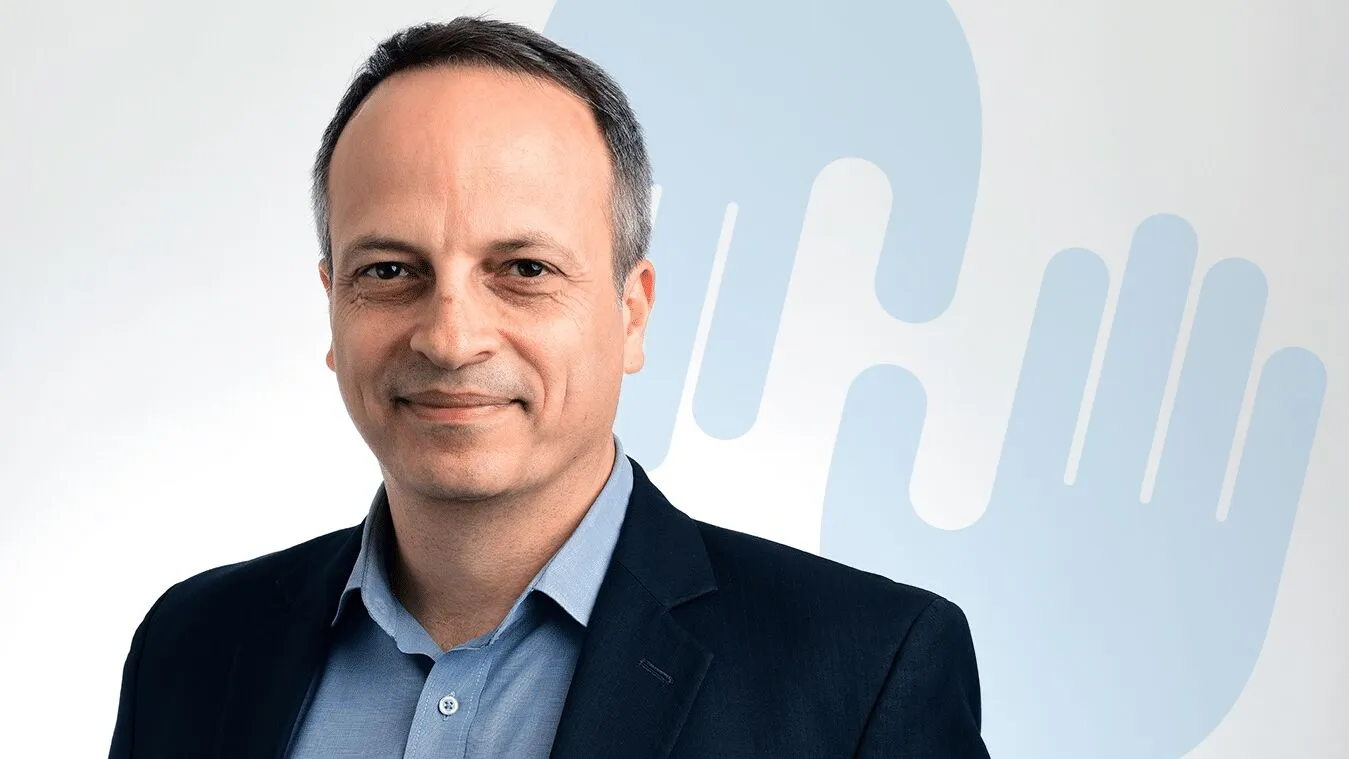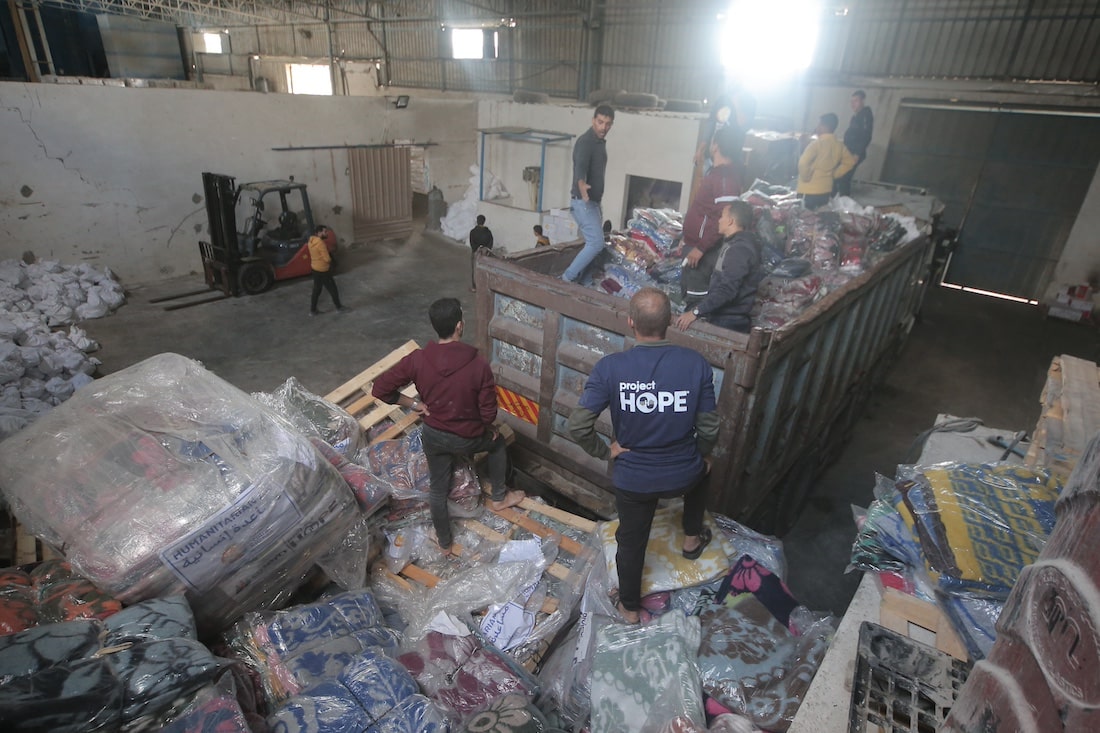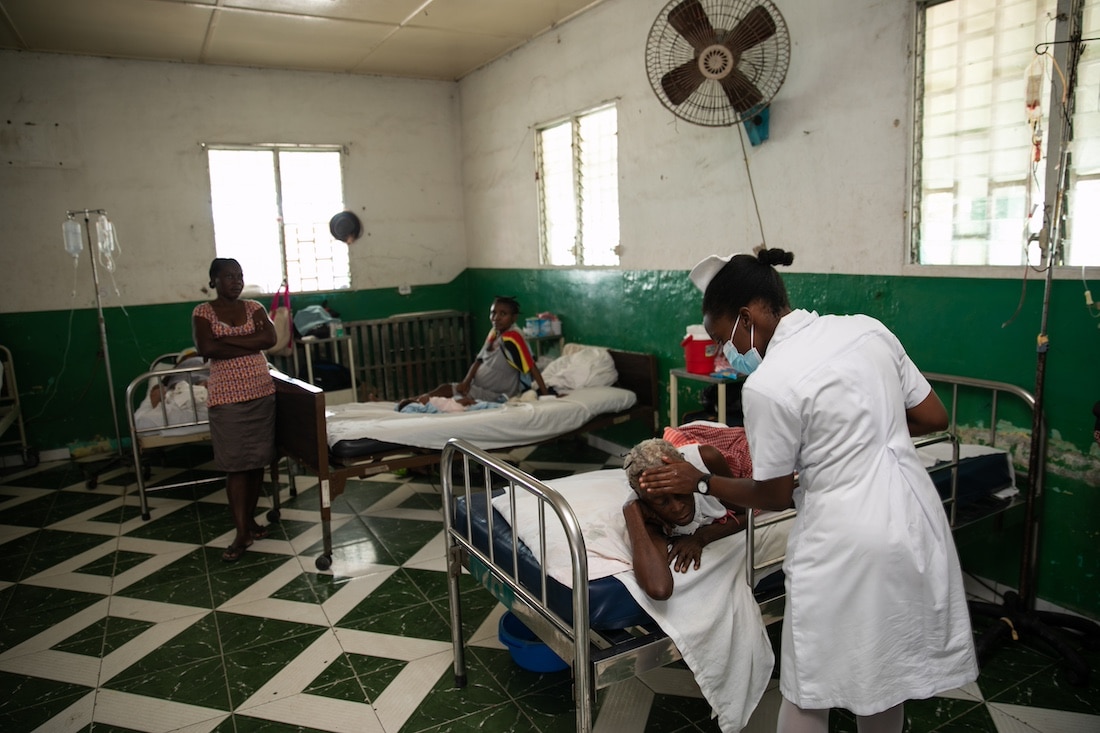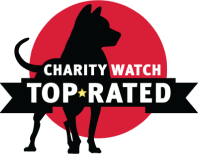The World’s Crises Are Compounding. Will We Act?

As we come to the end of 2023, we find ourselves yet again looking back on another year of major global health crises, both natural and human caused. From humanitarian emergencies in Gaza, Ukraine, Sudan, and Haiti, to devastating natural disasters in Türkiye, Syria, Libya, and Morocco, 2023 was a tragic year for far too many.
The horrifying October 7 attacks in Israel and the resulting humanitarian catastrophe in Gaza are a tragic reminder that innocent civilians are often the ones who bear the weight of conflict. Health care workers inside Gaza are past their breaking point after months of violence that has left thousands dead and a staggering 85% of Gaza’s population displaced. As one doctor told our team, “Nobody in this world can imagine the number of cases and the type of victims that have come to us. Our team is exhausted. Our team is very tired, emotionally, inside them. Most of us now need psychological therapy, because we’re just carrying more than we can carry.”
But even as our eyes are rightfully on the tragedy in Gaza, other crises continue to rage beneath much of the world’s notice. In Sudan, the horrors of the 2004 Darfur conflict are repeating as paramilitary forces overrun and massacre entire communities, killing thousands. Where is the outrage that once rallied the world?

As we turn the page to 2024, the world stands at a critical point. It is clear we will not achieve all of the United Nations’ Sustainable Development Goals that were set in 2015. We are not on track to achieve the Paris Agreement climate targets. Senseless conflicts are driving record amounts of displacement. Inequality is worsening. And waves of health workers are burning out.
The question we face is: Will we accept this as our reality?
Will we be satisfied to live in a world riven by conflict? Are we content to accept that a full third of the Sustainable Development Goals have stalled or that we may be short 10 million health care workers by 2030? Will we stand by as overcrowded boats capsize in the Mediterranean and lines of children traverse the Darién Gap? Will we shrug at our extreme climate?
The problems we face as a global community cannot be solved in isolation because they don’t exist in isolation. We saw this last year when Russia’s invasion of Ukraine impacted global food security, a problem exacerbated in the Horn of Africa by extreme drought and conflict. In Ethiopia alone, those events taken together drove millions of families from their homes and left 20 million people in need of food aid — an inexcusable situation in 2023.
We see the same downstream effects at our own border. It is not just migrants from Central or South America arriving at the U.S. border, but growing numbers of people from India, Türkiye, Mauritania, and China, all of them driven by desperation to endure the extreme risks of migration on the other side of the world.

We cannot solve these problems by merely treating the symptoms. We also will not do it alone. The global community must join together, reject isolationism, embrace cooperation, and invest big — right now. In the same way the Marshall Plan sparked European recovery in the wake of World War II, we must recognize that extraordinary problems require large-scale solutions. Now is the time to look beyond our own borders and prioritize cross-cutting investments that reduce poverty, provide opportunity, address the climate crisis, and expand access to health care.
The adage “think globally, act locally” is right: partnering with local organizations that know their communities best is a more sustainable way to build systems from the ground up that can withstand shocks and stresses like the ones we saw this year. Local communities must play an active role in setting the priorities, developing the solutions, influencing their design, and leading their implementation.
We are the only ones who can build the solutions to our most urgent issues. The good news is we know we can do it — because we’ve done it before. That’s why, despite all the tragedies of this year, I am also inspired when I look back. I’m moved by Project HOPE’s teams in Haiti, Ukraine, Gaza, Nigeria, Ethiopia, and around the world, who sacrifice every day to support our mission. I’m energized by the impact our teams are having on maternal health in Colombia, Indonesia, Sierra Leone, the Dominican Republic, and elsewhere.
I think about our local partners in Poland, Moldova, Morocco, Türkiye, Syria, and beyond, who are passionate about their communities and driven to create change. And I’m motivated by the spirit of the health workers I met this year, all of whom have gladly committed their lives to expanding access to health care.
When we look back at the end of 2024, what will we see? A world at war, fueled by nationalism, immune to the needs of the oppressed and marginalized? Or will we see a global community pulling together to advance the causes of peace, opportunity, health, and equity?
This is the only world we have. Our priorities will determine how we shape it.
Rabih Torbay is President and CEO of Project HOPE.







